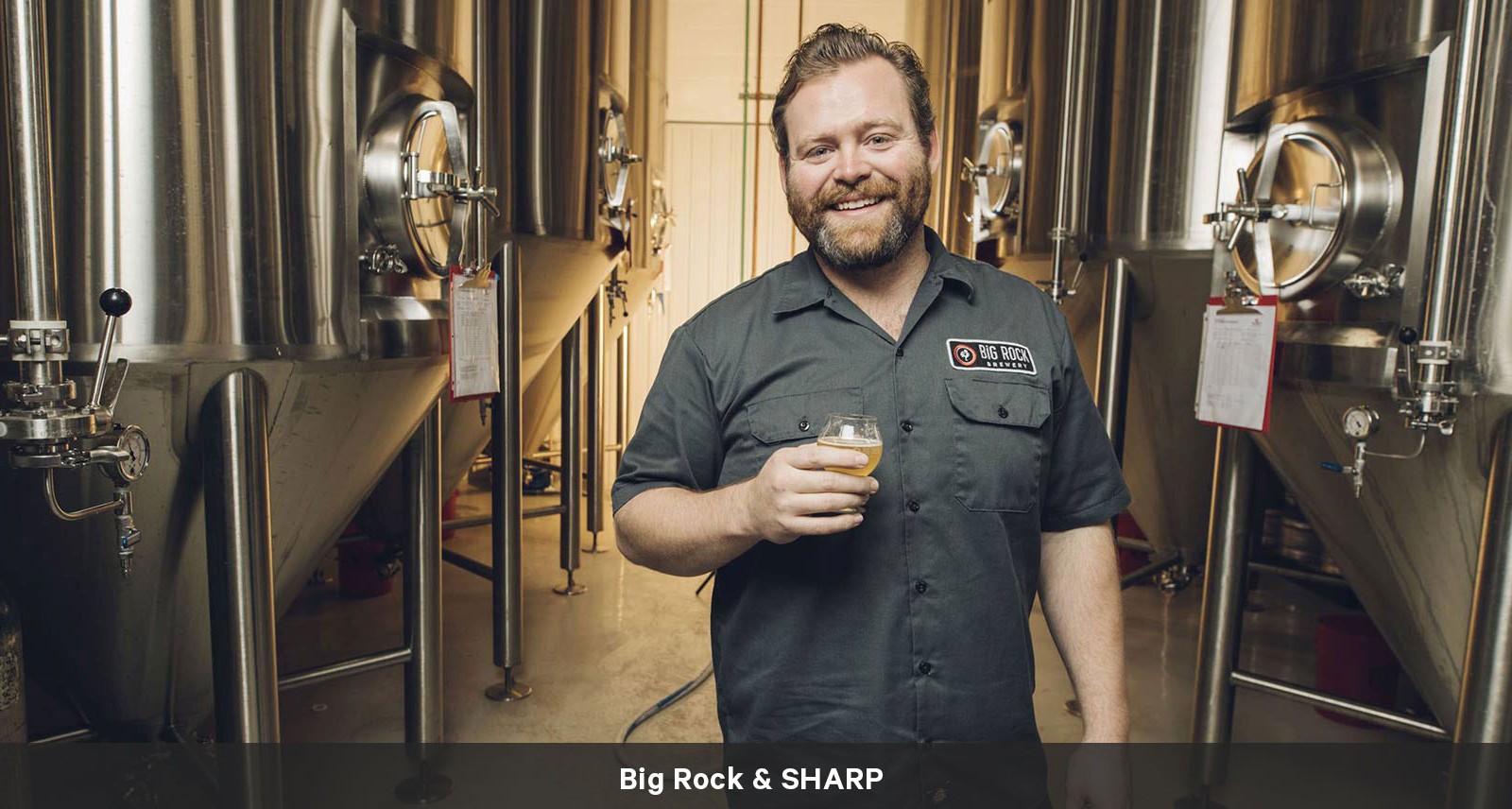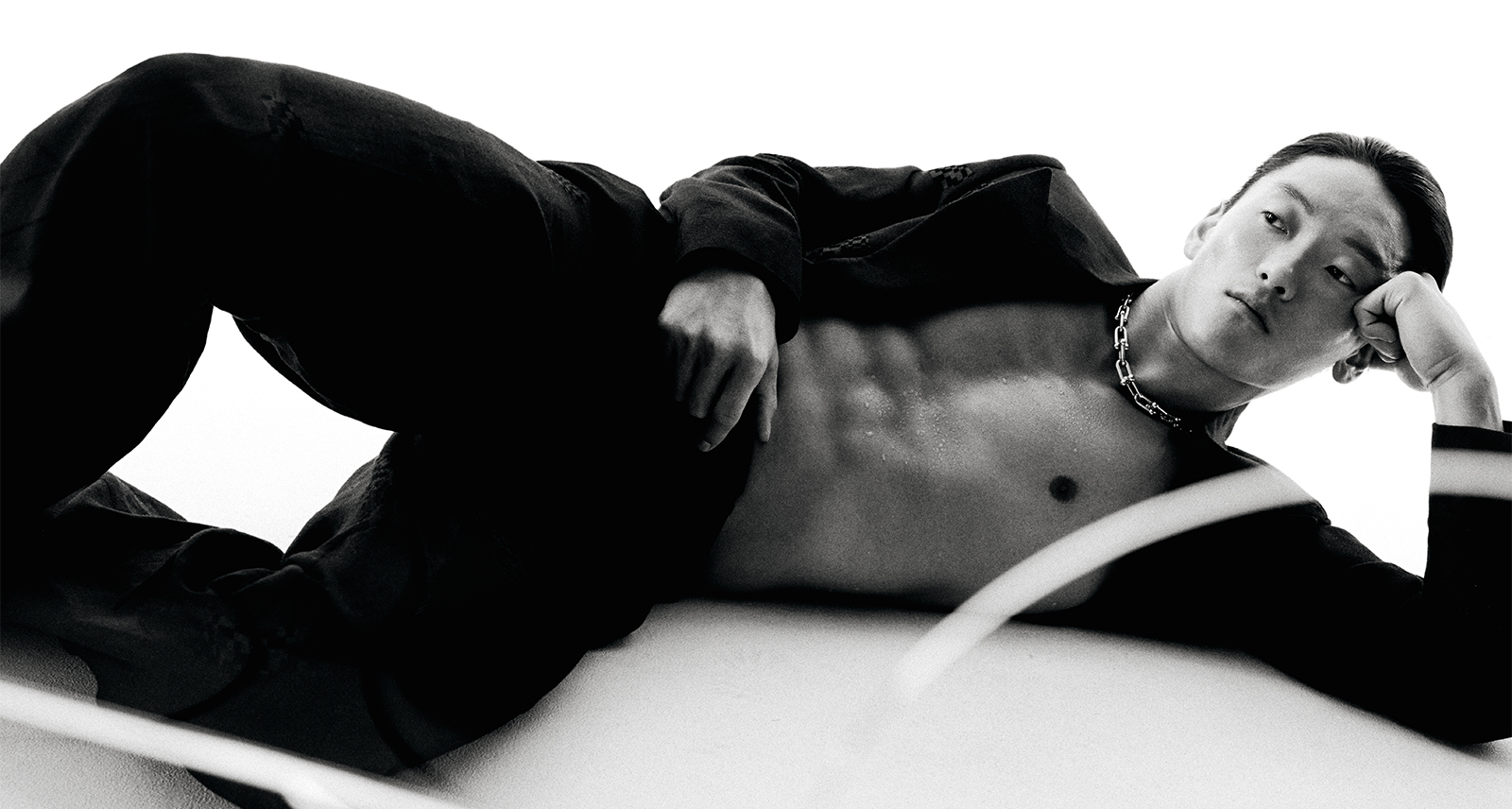There’s Never Been a Better Time to Quit Your Job and Become a Brewmaster
Craft beer. You love it — the hoppy goodness it brings, the camaraderie it incites, the happy chemicals it releases in your brain. If only there was a way to fill your waking hours with more of it — you know, besides drinking at work.
Well, [*cue Morpheus voice*] what if I told you there is a way. An increasing number of professionals are choosing to leave their current posts and launch new careers as brewers. It’s not hard to figure out why: more freedom, more flexibility, more beer in your life. With over 640 licensed breweries in Canada (and counting), there’s never been a more opportune time to perform a hard reset on your life and restart as a brewmaster.
Just ask Connor K. Patrick. After a debilitating injury ended his football career early over a decade ago, he sprung right back, becoming a brewmaster for Big Rock Brewery, Canada’s largest independent craft brewery. In hindsight, he wouldn’t change a damn thing. “From day one, it was one of those things where you start something new and just know that it’s where you are supposed to be,” says Patrick, who now oversees the brewery’s operations in Ontario. See that? That could be you.
We asked Big Rock’s three brewmasters — Connor Patrick, Jody Hammell, and Paul Gautreau — how one can go about expanding their career (h)options. (Sorry, that was un-beer-able.)
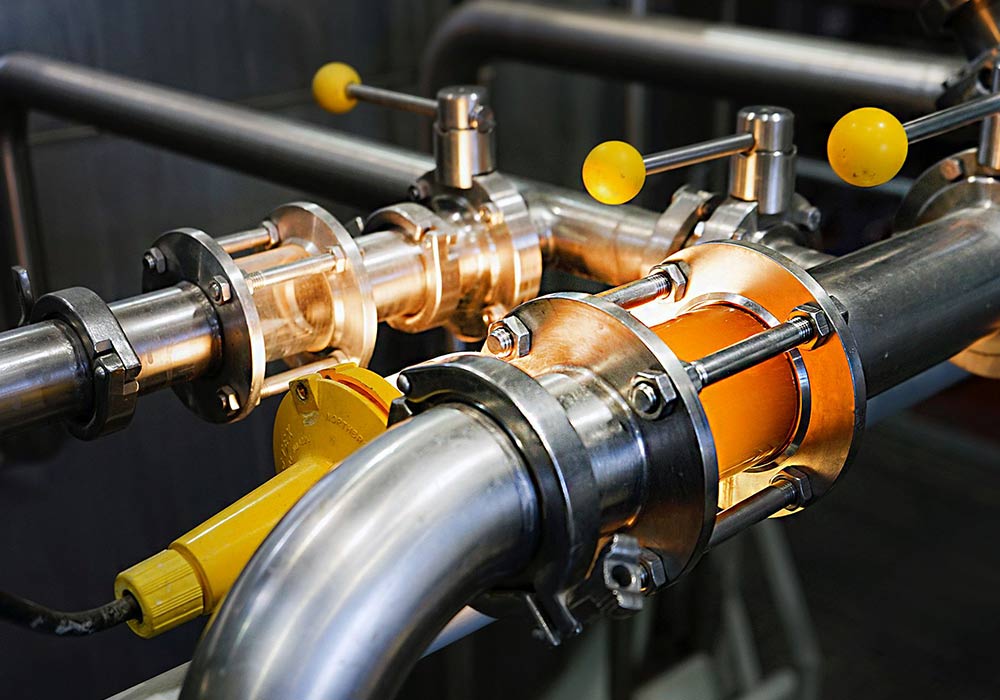
Say I’m thinking of quitting my job and becoming a brewmaster. (Here’s hoping my boss doesn’t read this.) How can I go about doing that? And how did you become one?
Connor K. Patrick: The first thing you must do before even thinking of switching careers is buy a whole bunch of plaid. Plaid everything. Plaid socks, plaid underwear, anything. And if you can, start growing a beard – never stop. Tattoo sleeves are not mandatory, but preference will be given to candidates with barley or hop related forearm tattoos. After this has been completed, you can look into brewing courses through the IBD (Institute of Brewing and Distilling), The Siebel Institute of Technology, Niagara and Olds Colleges, or the VLB. There are plenty of options available for those looking to begin or further their brewing education. For me, I started with the plaid and beard, skipped the forearm tattoos, and jumped right into the IBD and Siebel.
Paul Gautreau: Brewing is 25% art and 75% science. Biochemistry and a little engineering are the way to go. I became a brewmaster by wanting to learn everything I could about the industry and the business. I took engineering and many brewing science programs. I’ve brewed a lot of beer. I’ve been a brewmaster for Big Rock for over 30 years now and I’ve worked hard to make sure I’m constantly learning and getting better at what I do. Like any craft… you have to be passionate and committed.
Jody Hammell: Work in breweries first and make sure you even like doing the work. You will work hard, it will be hot, it will be cold, you will get burned (hopefully not bad), and the busiest of times of the year are when everybody else is having fun; long weekends, summer, Christmas, etc. I worked in breweries for about 7 years before I even considered becoming a brewmaster and getting my schooling.
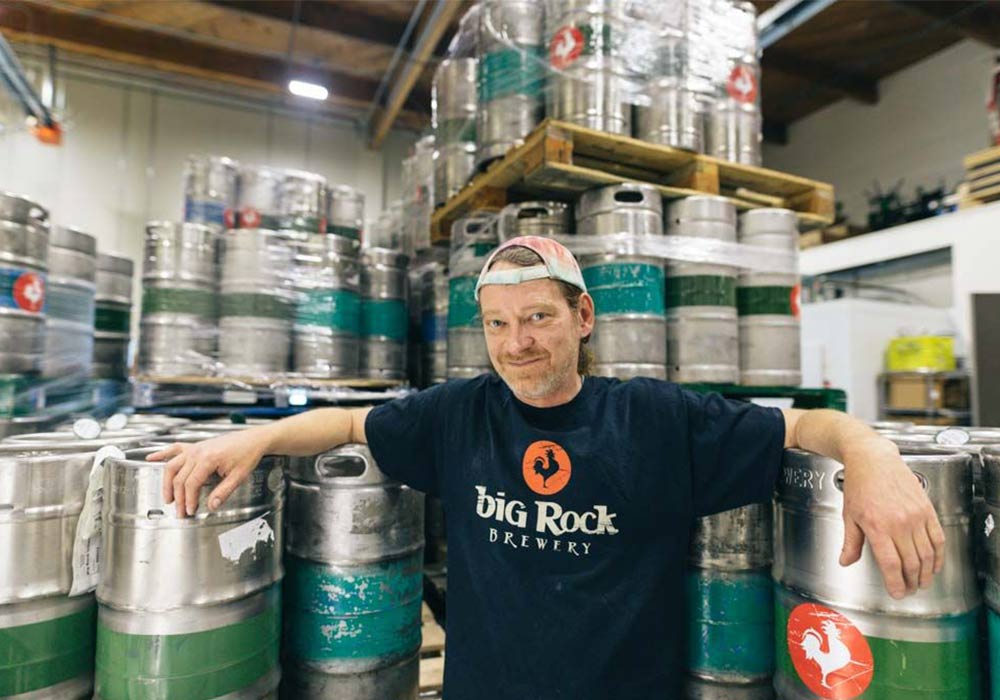
Alright. I’ve got the plaid thing down pat, but gonna have to work on that chin curtain. What are the job prospects like for aspiring brewers these days, anyway?
PG: The craft brew industry is exploding. There aren’t enough qualified brewers out there. Learn some brewing science, get some experience, and you’ll likely find a job.
JH: Job prospects are pretty good. There is obviously a big craft beer boom happening in Canada right now, but I think you must be willing to relocate for the right job. I started out at our Calgary brewery and when the opportunity came along to build a new craft brewery in Vancouver, my family and I made the move. It’s been an incredible opportunity for us.
CKP: The craft boom has really turned the industry into a thriving market for job seekers and there are many breweries looking for good help. I started 11 years ago with no brewing experience and have been able to make a great career in a fast paced, expanding market. If I can do it, anyone can.
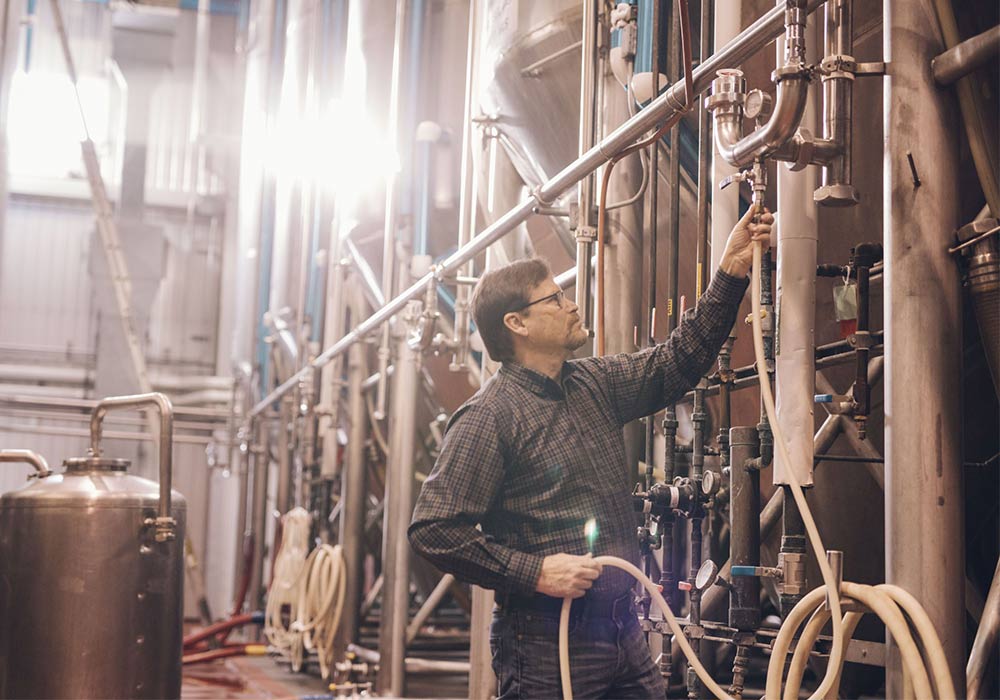
Well, that gives me hop(e)! I imagine working at a brewery being a lot like the movie Drinking Buddies — just palling around all day, throwing back a few, and hitting on your Olivia Wilde-looking coworkers. What’s the best part of your job?
PG: The people I work with. If you love your job you never work a day in your life.
JH: Personally, the best part about my job is that I don’t have one… and haven’t for most of my adult life. I have, instead, a lifestyle. I still think that sooner or later somebody, somewhere is going to catch on to that fact and I won’t get paid anymore.
CKP: Without question it is the people. There are such interesting people involved in brewing and I have been lucky to be able to get to know many of them. The beer is a nice perk too.
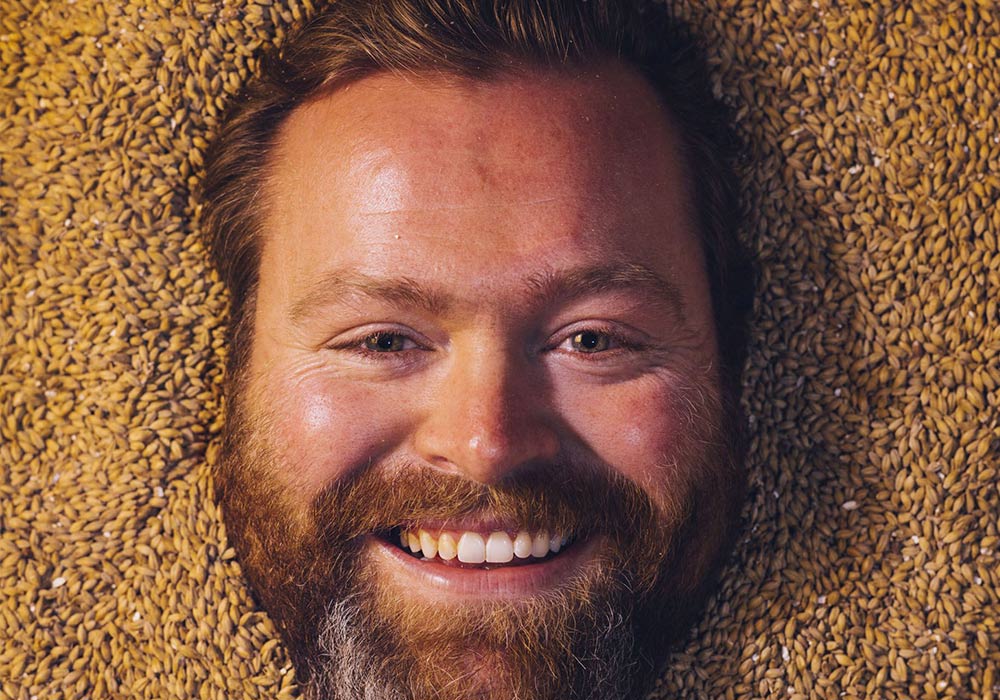
And what’s the biggest misconception about your job? I assume there aren’t that many Olivia Wilde lookalikes working at breweries.
PG: A brewmaster doesn’t just brew (and drink) beer. You manage people, inventory, equipment, schedules, budgets/costs, cleaning, packaging, product quality, logistics… the list goes on. The comradery is incredible and we make time to taste and share our brews, but there’s also a priority around management of time.
JH: That being a brewmaster is impressive. I seem to only really impress the short fat guys sitting at the bar.
CKP: That’s a tough one… maybe that all brewers have to have beards, wear plaid, and have forearm tattoos?
Phew! Pretty sure I can’t grow a beard, anyway — well, barley. Regardless, a life in the brewing business sounds like a promising career (m)alternative! (Sorry again.)
